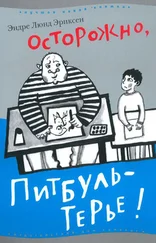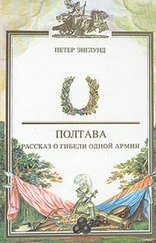Some Czech peculiarities apply to both genders. One of them is the importance of wearing nightclothes. If you are to spend a night at somebody’s house or cottage (see: Fridays) and don’t want to give the impression that you are either an uncivilized primitive or a sexual deviant, be sure to bring pyjamas or a nightgown. During the weekend, when people are relaxing at home, both men and women often wear tracksuits. This is not because they are working out, but because the tracksuits make it more comfortable to drink beer and eat chips in front of the telly. They are also obligatory for inmates in Czech prisons.
Footwear represents the ultimate super-dangerous pitfail for a foreigner. If you visit a block of flats, you will often see several pairs of shoes lined up outside each flat. Contrary to Moslems, who are driven by religious considerations, the Czechs only take practical precautions not to smear their Balkan-inspired wall-to-wall carpets with all the niceties that flood local streets (see: Dogs). According to the sexresearcher Radim Uzel, some men also take advantage of the fact that there is an alleged correspondence between shoe size and the length of the penis, and therefore place shoes twice their actual size outside, just to impress their female neighbours.
No matter what you think about the shoe/sexual organ link, if you are invited to a Czech home and your hosts urge you not to take off your sneakers, they are almost certainly expressing courtesy to their guest (see: Communication) and expecting you to say something like “Oh, that’s alright”, and then leave your shoes by the doorstep. If you don’t, and march into their flat with your shoes on, you’ll risk eternal damnation. Most Czech households have extra pairs of slippers, which guests are supposed to put on their feet during the visit.
And finally, when you travel by public transportation, go shopping, or just visit a restaurant, you may get a very palpable sniff of human bodies. Or, to put it plainly: many people, regardless of their gender, are proud to smell of sweat. Lots of those who don’t smell are happy to put up with the odour, and deodorants are still widely perceived as the privilege of homosexualsor social climbers. However, if you complain about the smell, you’ll only make a fool of yourself. This leaves you with two options: either pretend not to notice the stench, or start smelling yourself!
One of the main features of the alleged “Czech national character”, which many people in this country are firmly convinced exists (see: Golden Hands; National Identity) is a strong inclination towards scepticism. For instance, when polls only months before the EU enlargement in May 2004 suggested that the Czechs were the least enthusiastic of all new member states, nobody was too surprised. “Jesus Christ, what else could you expect from Europe’s biggest sceptics?” common wisdom calmly commented.
To assign certain personal character traits to an entire nation of 10.3 million individuals is certainly rubbish. And if the Czechs are so thoroughly sceptical, how is it that they are among the world’smost fervent buyers of overpriced junk from tele-shops? If the word scepticism, however, is interpreted as somewhat cautious behaviour combined with doubt about the truth of noble ideals (see: Religion), then the number of Czech sceptics may really be higher than the Western European average.
Those who revel in the myth of Czech scepticism usually explain its existence by pointing to the country’s turbulent history. From the disastrous Battle of White Mountainin 1620 to the Munich Agreementin 1938 to the Soviet invasion two decades later, radical changes have tended to be for the worse. Add forty years of communism, when people had very limited possibilities to influence their own lives, and you understand why the philosophy “a bird in the hand is worth two in the bush” has got so many followers in this country.
While this generalization is too strong when it comes to the entire Czech population, it fits quite well as a characterization of political development during the first decade after the Velvet Revolution. On the rhetorical level, Václav Klausand his “right-wing” ODS promised more radical reforms than in any other post-communist country. In the real world, however, many changes were milder, slower and more considerate than in other transition economies. In other words, it was crucial to avoid dramatic changes and maintain the social equilibrium. If it was disturbed, even pro-reform voters might be turned off.
Today, however, the subject “Czech scepticism” has started to live its own life. In important international questions, such as the Czech Republic’s NATO membership in 1999, the EU enlargement in 2004, and the war in Iraq, people are almost expected to take a wait-and-see attitude, because “a sceptical approach is the Czech way of doing things”. However, making a fetish out of scepticism at a time that belongs to the brightest in Czech history resembles more closely an excuse for remaining passive.
One of the first things that meet you when you cross the borders into the Czech Republic is an enormous number of “erotic clubs”, which is the local euphemism for an institution most other countries know as brothels. Actually, they are not limited only to the border region. Every Czech city with some self-respect boasts at least one erotic club, a massage parlour, or hotel with “extended services”, where men (there are erotic clubs for women too, but rather few) are helped to rid their flesh of lust.
This may lead you to conclude that the Czechs are completely obsessed with sex. Unfortunately, that’s not entirely correct. Instead, the incredible congregation of brothels primarily reflects the fact that the Czech Republic after the Velvet Revolutionhas become one of Europe’s major destinations for sex-tourism (see: Germans). And the reason for this is not only the geographical proximity to Western Europe and a pleasant price tag, but also the country’s traditionally liberal attitude towards moral issues (see: Religion), which has led to an equally relaxed relationship towards sex — including the kind available for money.
Where sexual habits are concerned, the Czechs seem to be perfectly in the middle of the road. Recent surveys show that the average Czech has sexual intercourse 144 times a year, which is less frequently than the average American (who is exaggerating, as always), but more often than the Japanese (who’s probably ashamed to tell the truth). The Czechs have their first sexual experience somewhat later than the average Scandinavian (at 18 for both men and women), but earlier than what is common in Italy and Spain, while the percentage of homosexuals, logically, corresponds to the average in Western Europe.
The condom producer Durex places the Czech Republic in a European context with these words: “The Czechs have sex as often as the French, they start their sexual life as early as the Dutch, and they fear venereal disease as little as the Italians.”
Still, the Czechs can book one sexual worldrecord: few other countries can boast a more liberal attitude towards marital infidelity. A survey conducted by the company TNS Factum in 2003 showed that Czechs, on one hand, consider “life in a happy family” to be of the utmost importance. On the other hand, they tolerate — and conduct — marital infidelity to an extent that is matched globally only by the Bulgarians and Russians. What’s the reason for this anomaly?
It’s certainly not too wild to guess that it has its root in the era of communism. Many ugly things can be said about the Czechoslovak Bolsheviks, but they shall be credited for one thing: they lavishly financed the establishment of families; i.e. of marriages. As the sociologist Jiří Černý explained in an article in Lidové Noviny daily, the goal of this policy was to turn the family into a social instrument that produced new labourers, took care of the elderly, and stuffed each citizen into collectives that discouraged him or her from “dangerous individualism”. The state even encouraged young people to marry by offering them “marital loans”, which secured young Czechs an economic head start that Westerners of similar age could only dream of.
Читать дальше








![Theresa Cheung - The Dream Dictionary from A to Z [Revised edition] - The Ultimate A–Z to Interpret the Secrets of Your Dreams](/books/692092/theresa-cheung-the-dream-dictionary-from-a-to-z-r-thumb.webp)



